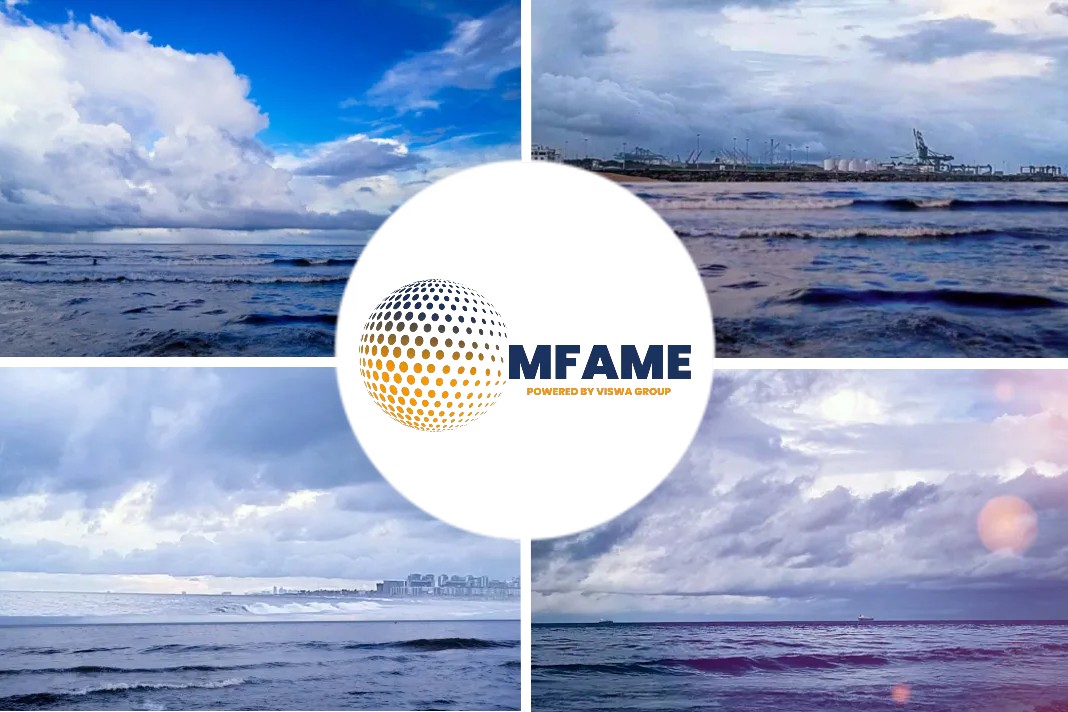
- The importance of carbon revenues that could be generated through an IMO economic measure for financing port infrastructure, retrofitting capacity etc. across Africa.
- The need for the transition in maritime to low-carbon shipping in Africa to consider the socio-economic dimensions of the challenge.
- Common themes throughout the panel session were the opportunities for Africa as a continent, in terms of producing low and zero carbon future fuels.
Africa’s abundance of solar, wind and thermal energy across the continent can place Africa at the core of the global decarbonization of maritime transport, the IMO conference on Low-Carbon Shipping in Africa heard (5 May).
Critical year for maritime decarbonization
Speaking at the Conference, held in In Mombasa, Kenya and co-organized with the Kenya Maritime Authority, Mr. Xiaojie Zhang, Director, Technical Cooperation Division, IMO, reminded delegates that 2023 is a critical year for maritime decarbonization, with Member States at the 80th session of IMO’s Marine Environment Protection Committee (MEPC) in London the first week of July set to adopt IMO’s 2023 GHG Strategy.
Green shipping in Africa
Mr. Zhang called on African nations to “to make your voice heard, and to unlock the great potential the phase out of greenhouse gas emissions of international shipping can generate in Africa.”
“When IMO adopts this July a revised GHG Strategy with a clear phase‑out date of greenhouse gas emissions from international shipping, the global shipping industry will actively look at providers of alternative shipping fuels and African ports could become future energy hubs for low carbon shipping fuels,” Mr. Zhang said.
Low-carbon shipping
He emphasized the importance of carbon revenues that could be generated through an IMO economic measure – like a fuel levy – for financing port infrastructure, retrofitting capacity, or bunkering facilities across Africa.
This theme was echoed by Ambassador Ms. Nancy Karigithu, Special Envoy on Blue Economy, Kenya, who highlighted the range of financing mechanisms, such as public-private partnerships, climate funds, and green bonds, to support the transition to low-carbon shipping.
She emphasized, too, the need for the transition in maritime to low-carbon shipping in Africa to consider the socio-economic dimensions of the challenge. “The transition needs to be inclusive and equitable,” she said.
The Hon. Mr. Kwaku Ofori Asiamah, Minister of Transport, Ghana, echoed the call for Africa’s participation at IMO meetings, “to ensure our needs and concerns are addressed and also indicate our support or otherwise for global maritime regulations”.
Tackling climate change
“Africa is the key to speeding up global climate action on the Decarbonization Agenda. With its young and growing workforce, vast lands and various natural resources, the continent has the potential to make an important contribution to tackle climate change.
These assets could be crucial in driving global efforts to mitigate the effects of climate change, while creating new economic opportunities,” Mr. Ofori Asiamah said.
Panel sessions
The IMO conference on Low-Carbon Shipping in Africa focused on “Overcoming challenges by unlocking opportunities and investments”. It included panel sessions on:
Setting the scene: Global climate action and IMO’s efforts to reduce GHG emissions from shipping. Shipping as an enabler of climate action and energy transition.
IMO’s future framework and partnerships enabling the global take up of low- and zero carbon future fuels.
National coordinated action enabling maritime decarbonization. Unlocking green maritime jobs in Africa
Zero carbon future fuels
Common themes throughout the panel session were the opportunities for Africa as a continent, in terms of producing low and zero carbon future fuels.
The challenges were highlighted, as well as the need for technology transfer and financing – and for the transition to be just and equitable transition.
Projects already underway and planned were outlined, including those being facilitated by IMO’s Department for Partnerships and Projects, including through the Maritime Technology Cooperation Centre for Africa (MTCC-Africa) such as the IMO-NORAD TEST Biofouling projectand the EU-funded Global MTCC Network Project (GMN) Phase II.
Country representatives from Angola, United Republic of Tanzania, South Africa and Kenya outlined their ongoing work to green their ports.
Setting strong GHG reduction target
Many delegates who spoke voiced the need for IMO to give clear direction through its revised climate strategy.
In his final remarks, Roel Hoenders, Head, Air Pollution and Energy Efficiency, IMO, agreed that “setting an ambitious GHG reduction target at MEPC 80 will send a strong signal to the market and investors that maritime is ready to decarbonize – and this will bring new investments and new jobs to Africa”.
Marine Environment Protection Committee
Closing the conference, Mr. Shadrack Mwadime, Principal Secretary, State Department for Shipping and Maritime Affairs, said that the discussions held during the conference “will better help African countries to prepare for the upcoming Marine Environment Protection Committee meeting in July, and for African countries to have a common approach on how we want the international community to address greenhouse gas emissions”.
The conference was organized by IMO, through IMO’s Integrated Technical Cooperation Programme (ITCP), in collaboration with the Kenya Maritime Authority.
Participants came from 49 African countries. The Conference followed the 6th Association of African Maritime Administrations (AAMA) Conference and General Assembly (3-4 May).
Did you subscribe to our Newsletter?
It’s Free! Click here to Subscribe.
Source: Hellenic Shipping News
















